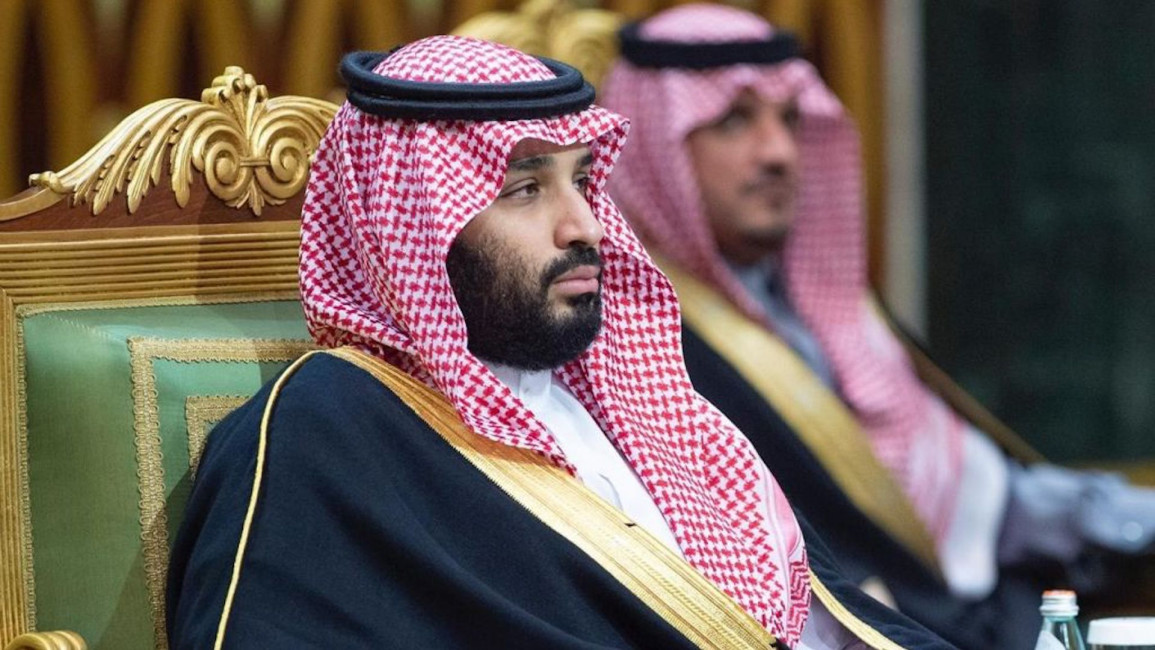
Lack of transparency looms large over Saudi Arabia's nuclear ambitions
Indeed, the United Arab Emirates (UAE) at the start of 2020 opened the first nuclear power plant in the Arab world, with plans to expand it to meet one-quarter of the country's electricity demands.
It now appears that Saudi Arabia has ambitions to do the same; certainly, the Saudis have been open and explicit about their intention to develop nuclear energy as part of Vision 2030, but questions remain about regulation, particularly in light of recent findings.
According to reports written by Chinese geologists and revealed to the Guardian, geologists have worked year-round since 2017 to identify reserves that could potentially produce over 90,000 tonnes of uranium from three "inferred deposits" in central and northwestern Saudi Arabia.
Such a development would, most obviously, aid in energy production, helping to wean Saudi Arabia off of hydrocarbon resources. If successful, one question is what would happen to OPEC and to Saudi Arabia's leading role in it. Further, given that there is no similar such organisation to govern or regulate the nuclear fuel market in the same way, it begs the question of how, and indeed, whether this industry would be regulated internationally.
Given international distrust of Saudi Crown Prince Mohammed bin Salman (MbS), largely since the disappearance and murder of Jamal Khashoggi in 2018, questions have also arisen about the potential use of the newly discovered uranium ore deposits for nuclear weapons development.
 |
MbS has clearly voiced at least some ambition for nuclear weaponry |  |
Indeed, it is more difficult for international regulatory bodies to stymie nuclear production if the uranium is derived from a domestic source. And MbS has clearly voiced at least some ambition for nuclear weaponry, having stated in 2018 that, if Iran develops a nuclear bomb, "we will follow suit as soon as possible."
In terms of current monitoring practices, Saudi Arabia has signed the NPT but is one of 31 countries that applies an old set of regulations with the IAEA that does not allow inspections by the agency as part of Small Quantities Protocol, which is meant for those countries with little to no nuclear material.
Twitter Post
|
By signing an IAEA Additional Protocol, like the UAE, Saudi Arabia would be subject to investigations and would be more likely to gain assistance from the United States, with whom talks on nuclear energy cooperation have so far stalled.
For its part, the IAEA recently published a document ahead of its upcoming annual conference clarifying that it has helped Saudi Arabia in its efforts to make nuclear fuel and has remained "in dialogue" with Saudi authorities about granting access to inspectors to allow them to monitor how the uranium that may be made inside the country would be used. So far, however, the IAEA has waived inspections in Saudi Arabia.
Read more: US looking into claims of China-Saudi 'nuclear bomb' developments
One problem is that distrust and poor reputation are not sufficient reasons to change the IAEA's protocol and Saudi Arabia's part therein.
As much as Saudi Arabia's pursuit of nuclear energy and potentially in the longer-term future nuclear weapons worries neighbours in the region, what worries them most is that the current leadership would usher in this process, meaning that it will likely continue to suffer from a lack of transparency and a high level of international scepticism.
MbS has an opportunity to move ahead of potential criticism by allowing IAEA inspectors into the country and demonstrating a willingness to play by the rules moving forward. Indeed, the Saudi pursuit of nuclear energy in itself should not be a cause for concern; the fact that it is being pursued under the leadership of a figure who has earned deep distrust from the international community is the real issue.
 |
Saudi Arabia's turning to Chinese assistance in its pursuit of nuclear energy has also raised concern in DC |  |
Saudi Arabia's turning to Chinese assistance in its pursuit of nuclear energy has also raised concern in DC that the kingdom is looking away from the US, whose leadership could become more anti-Saudi under a Biden administration. While Chinese interests in the Arabian Peninsula have thus far proven to be primarily commercial, it is notable that Saudi Arabia has also sought out Chinese assistance with a domestic ballistic missile programme, perhaps signalling greater cooperation in the security field where the United States has long been Saudi Arabia's primary partner.
Overall, however, it is fears about continued lack of transparency from MbS, rather than the intention to produce nuclear energy, that has led to concern about the process of doing so and potential future uses of nuclear energy; it remains to be seen whether MbS will assuage these fears by submitting to international protocol and inspections.
Dr Courtney Freer is a research fellow at LSE Middle East Centre.
Follow her on Twitter: @CourtneyFreer
Have questions or comments? Email us at: editorial-english@alaraby.co.uk
Opinions expressed in this article remain those of the author and do not necessarily represent those of The New Arab, its editorial board or staff.



